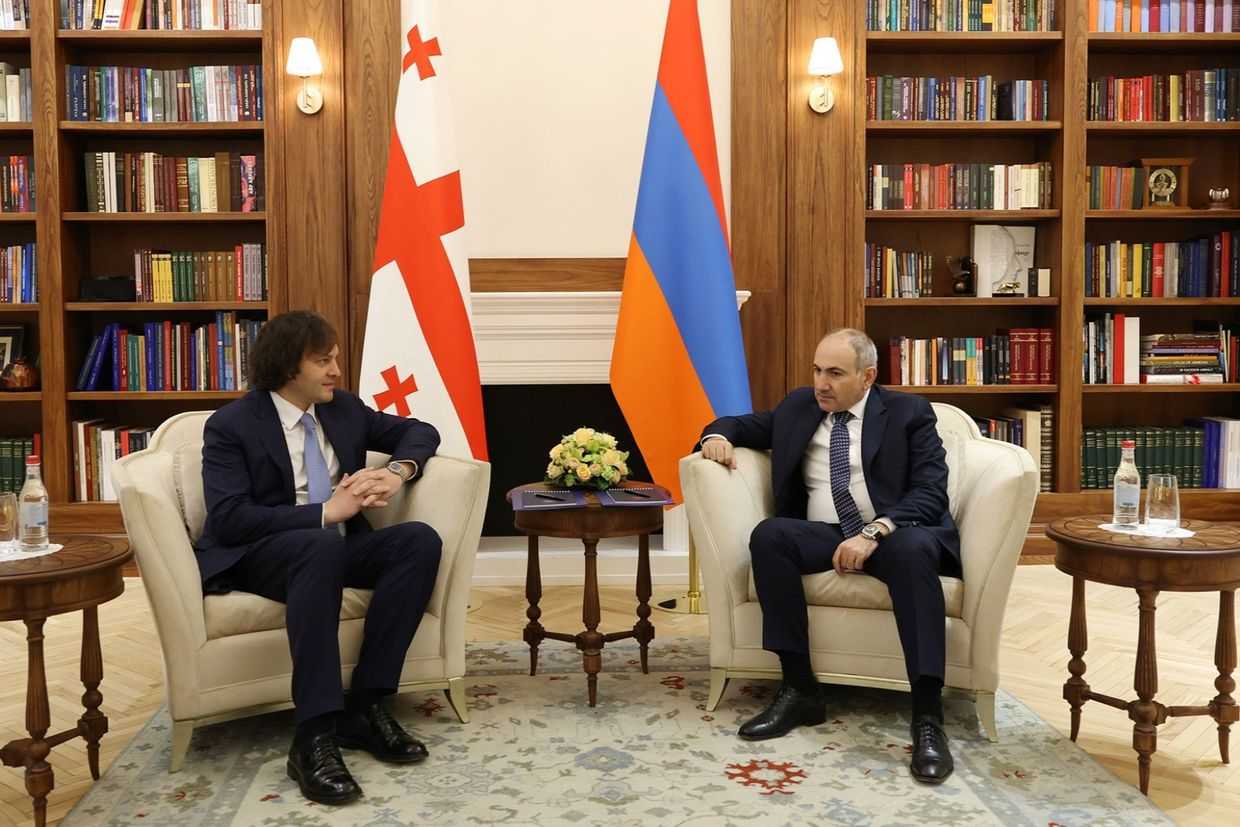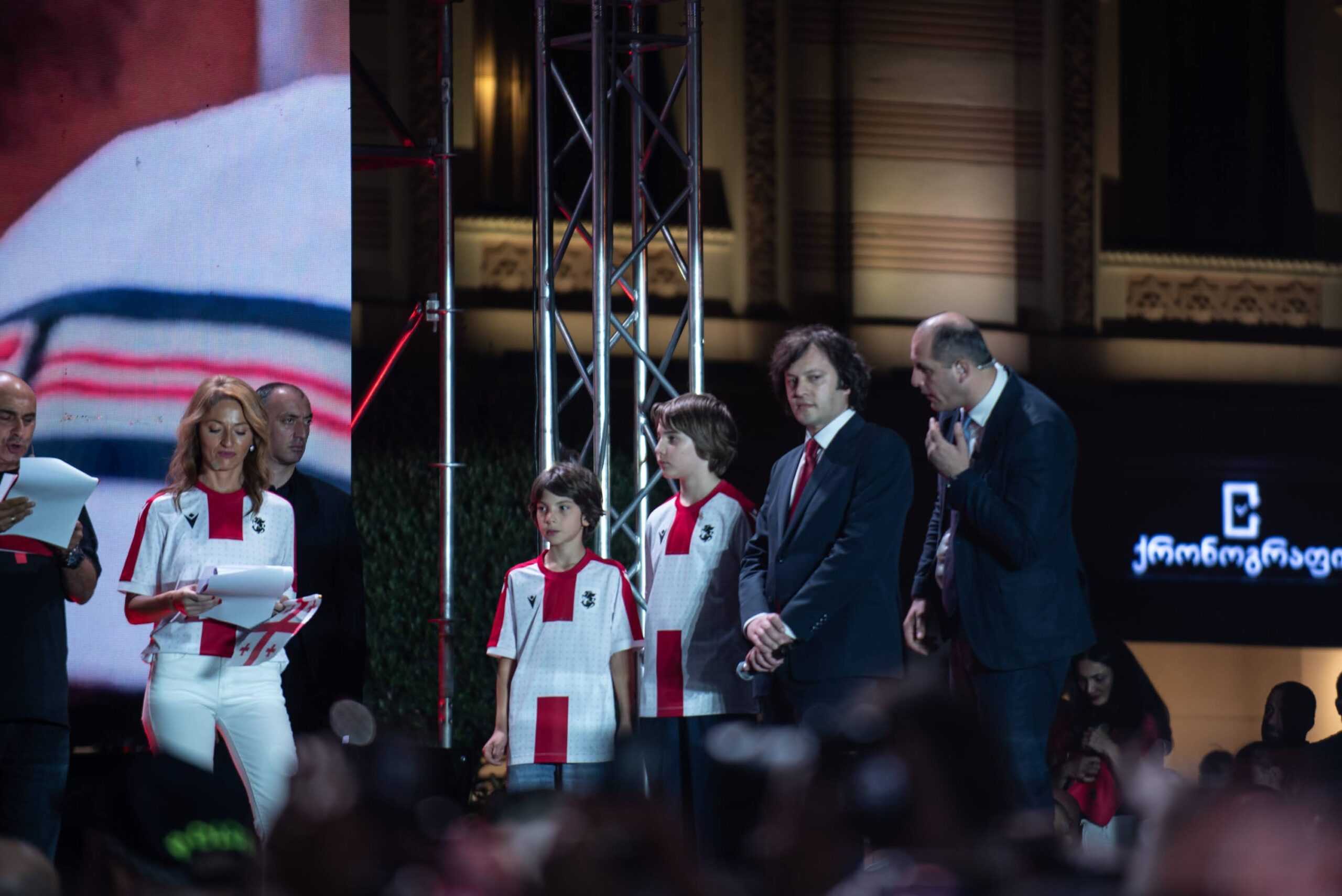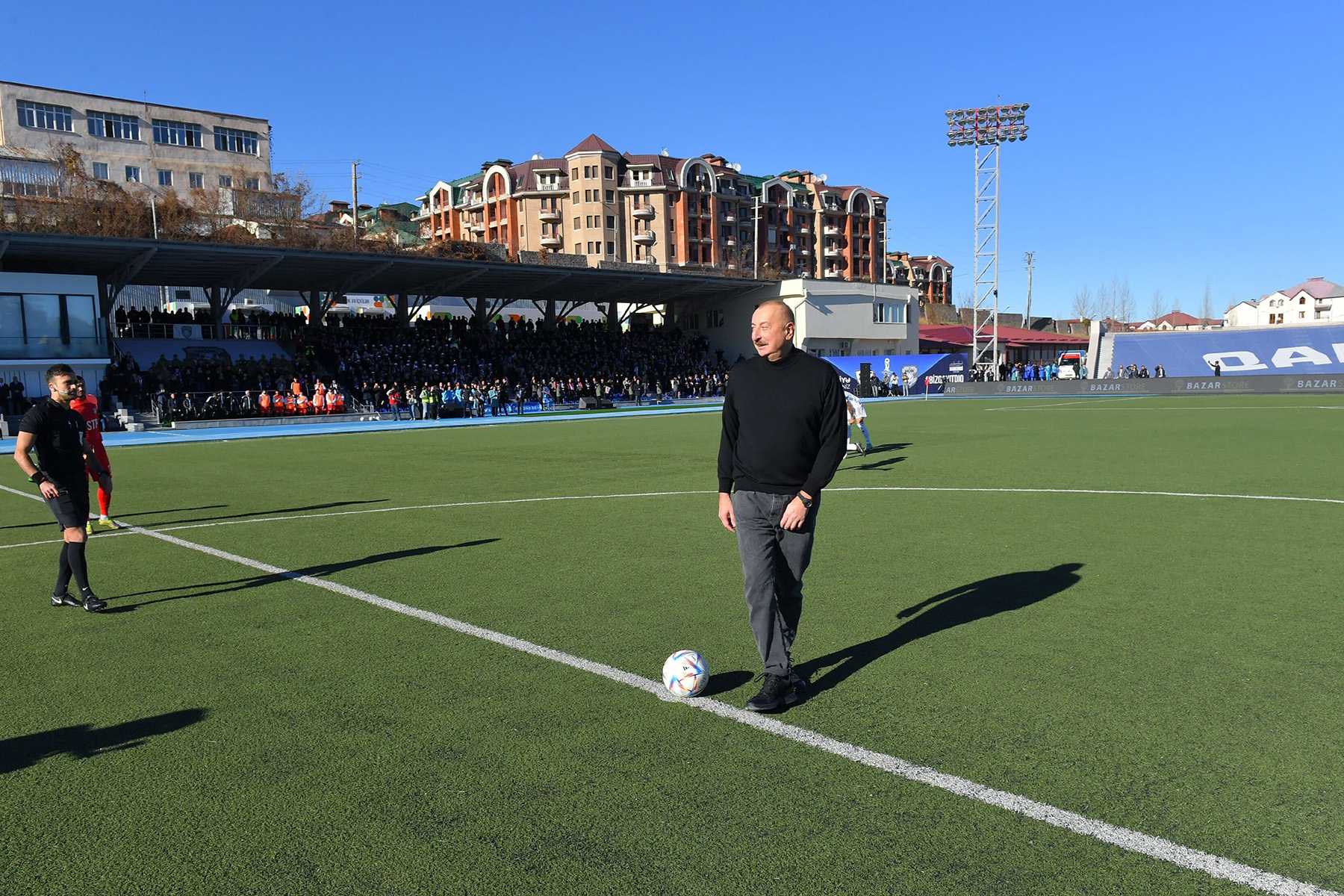
The death of 19-year-old footballer Giorgi Shakarashvili in Georgia has gripped the country for weeks, with questions raised over the official investigation.
Shakarashvili, 19, who played for FC Saburtalo’s youth team, was found dead on 22 June in the River Aragvi, about 30 kilometres north of the capital Tbilisi.
According to investigators, Shakarashvili died after he and his friends were attacked by several groups of young men as they were on their way home from a party.
The case has received non-stop coverage in the Georgian media over the past month, with journalistic investigations by prime-time shows on major tv channels including Mtavari Arkhi, Pirveli, and Formula.
On 10 July, the Prosecutor’s Office unveiled the results of the forensic inquiry of Shakarashvili’s body, which confirmed that the teenager drowned but sustained 12 non-lethal injuries shortly before dying.
The coroner’s report shed little light on the circumstances of the teenager’s death but strengthened suspicions that his injuries were the result of violence and not from falling down the slope leading to the river — a possibility suggested by several of the suspects’ lawyers.
Citing the forensics report, Shakarashvili’s family claimed on 10 July that his death was a case of premeditated group murder and that his killers subsequently threw his body into the river.
Four days after Shakarashvili’s body was discovered, police arrested 11 men and six boys who are suspected of being involved. All of them have claimed that they are innocent.
After the forensic autopsy identified numerous non-lethal blunt force injuries inflicted shortly before Shakarashvili’s death, including to his lips, forehead, eye sockets, arm, groin, waist, and buttocks, the Prosecutor’s Office started treating the case as ‘murder by more than one person under aggravated circumstances’, a crime punishable by 16–20 years in prison.
Official account
According to investigation documents procured by the media, in the early hours of 19 June, the night he died, Giorgi Shakarashvili and five friends were assaulted by two separate groups of men on two separate occasions.
The teenagers were returning from a party in the city of Mtskheta which ended following a brawl. According to the investigation, they were intercepted by friends of some of the participants of the fight who set out from Tbilisi to seek revenge.
No one present at the party has suggested that Shakarashvili or his friends participated in the original incident.
The first group reportedly stopped their car near Mtskheta and attacked the teenagers. Shakarashvili and at least two of his friends fled the scene. One of the young men who fled, Iakob Bregvadze, was separated from the group and called the police who picked him later that night.
Around 25 minutes after the first incident, another group of six arrived in a separate car and confronted the remaining teenagers, including Shakarashvili, who had reunited by this point.
The group scattered with Shakarashvili ultimately heading towards the River Aragvi, alone.
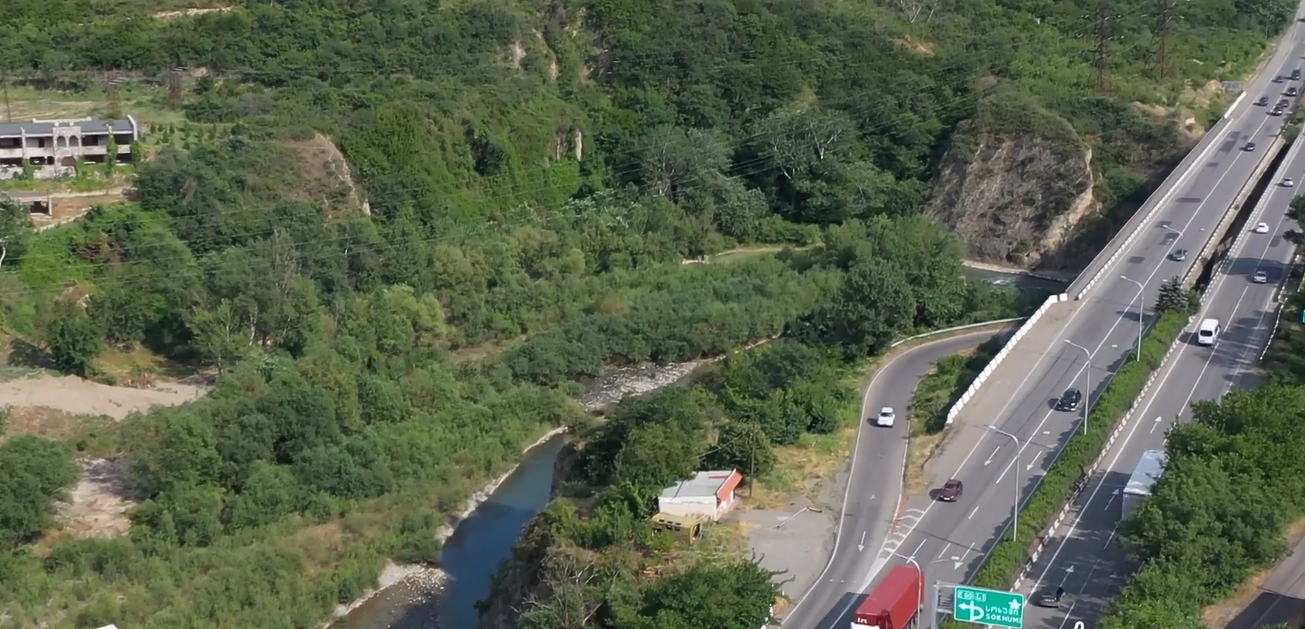
Four days later, Shakarashvili’s body was found in the river within a kilometre of where the incident allegedly took place.
Investigation by media
The national media, along with several opposition groups, have questioned if the investigation was being properly conducted and was free from outside influence.
Many have cited the reappointment earlier this year of Irakli Shotadze as Chief Prosecutor as a reason not to trust the official investigation. In 2018, a cover-up of another fatal teen brawl under Shotadze led to months of anti-government protests.
Another controversial figure in the investigation is Vakhtang Gomelauri, who now heads the Interior Ministry. Gomelauri was responsible for a controversial anti-terror sweep in which a nineteen-year-old Temirlan Machalikashvili was shot dead in 2017. His family have insisted he was innocent.
[Read from EMC’s Tamta Mikeladze: Opinion | Nearly two years after the killing of Temirlan Machalikashvili there are still no answers]
In the case of Shakarashvili, the Interior Ministry has been criticised for initially launching an investigation only into an ‘unlawful deprivation of freedom’, and only later adding articles of organising and participating in group violence.
The investigation did not officially begin looking into Shakarashvili’s death as a murder until 17 days after his body was recovered.
Additionally, on the night of the incident, the 112 emergency dispatcher failed to quickly identify the location of Iakob Bregvadze, the only one among the victim’s friends who called the police while hiding from their alleged attackers.
In a recording released by the authorities, a dispatcher is heard saying they could not locate the ‘Kebab House’ establishment mentioned by Bregvadze, something easily identifiable on Google Maps. Bregvadze, sounding desperate, then asks to cancel the call.
The police eventually showed up in the area after the incident was over and picked up Bregvadze. An investigation into the incident was not immediately launched.
Additionally, a patch of grass where another of Shakarashvili’s friends hid from the attack was found to have been burned, something that the investigation later explained as a non-related accident.
The investigation has also yet to clarify about a third car that stopped at the scene of the incident for over 15 minutes.
Mtavari Arkhi, a channel linked with the former government, has been among the media outlets to offer alternative versions of the investigation.
On 7 July, the channel aired CCTV footage of a man speaking with one of Shakarashvili’s friends, a witness in the case, in Tbilisi after the incident.
The channel claimed that the man was a ‘street gang leader’ who they said was close to the family of the chair of the ruling Georgian Dream Party. Shortly thereafter, the Director of the channel and the anchor of the show were summoned by the Prosecutor’s Office who requested evidence of their claims.
On 20 July, Mtavari Arkhi also hosted several guests who alleged that, based on inconsistencies in official reports of the initial examination of the body, Giorgi Shakarashvili must have died later than 19 June.
Suspicion over the independence of the official investigation grew among some government critics after Interior Ministry spokesperson Nino Giorgobiani confirmed that Iakob Bregvadze, the only witness to call the police, was her relative. Giorgobiani denied being directly involved in the case.
Eighteen-year-old Bregvadze, as well as Shakarashvili’s family — who said that they trust the investigation — have become increasingly targeted by some Georgian media pursuing theories of a cover-up.
Accusations of harassment
On 17 July, Tamuna Shavlishvili, the mother of the deceased, publicly condemned the media for making the story of her son’s death the subject of political speculation.
‘I am forced to ask the public for protection from you’, Shalvashvili wrote on her Facebook page.
Shakarashvili’s uncle, Mirian Nikoladze, who has represented the family in the media, has been accused by journalists from Mtavari Arkhi of building a political career out of the case.
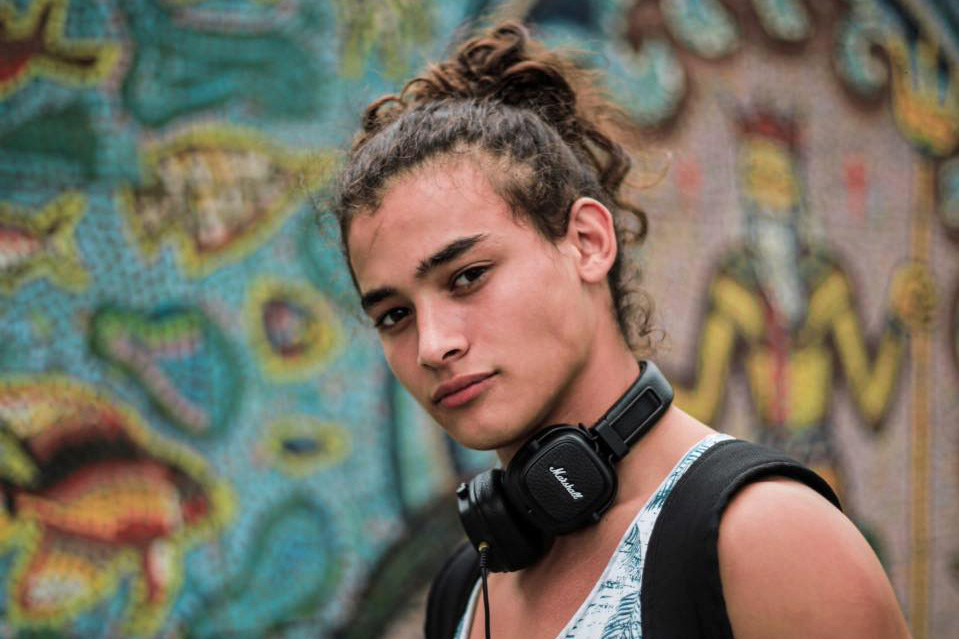
Iakob Bregvadze has also complained of being harassed by journalists, with some in the media accusing him, without evidence, of being an agent of the State Security Service.
‘I had no idea there were so many investigators in Georgia,’ President Salome Zurabishvili said on 15 July, urging the public to allow the Prosecutor’s Office to conduct their investigation.
Natia Kuprashvili, the Chair of the Tbilisi-based Journalism Resource Centre, said it was the media’s ‘fundamental responsibility’ to investigate such cases.
‘When there are so many questions [over the investigation], when we have such a big tragedy, it would be wrong to blame the media’, Kuprashvili told OC Media. ‘What could be debatable, though, is how [the media] fulfil their mission.’
She stressed that in a healthy media environment the public should see ‘that the media is not an interested party’ and that it is not fighting over ‘exclusives’ and ‘ratings’ or ‘serving political goals.’
‘The public always sees when the media covers something in a biased way and has some kind of agenda’, she said. ‘This is when it becomes especially vulnerable to government restrictions and campaigns.’
It would be ‘wrong’, she added, to ‘paint [all media outlets] with the same brush’ stating that the Shakarashvili case was being covered differently by different media outlets.
Youth violence
The case has also brought attention to youth violence in Georgia.
‘We are still facing a problem of fatal violence among our youth, this is a big tragedy for our country!’ Georgian President Salome Zurabishvili wrote on Facebook while expressing her condolences to Shakarashvili’s family on 22 June.
A similar sentiment was voiced that day by Nino Lomjaria, Georgian Public Defender.
‘Solidarity and support to the family of Giorgi Shakarashvili in these difficult times’, Guram Kashia, Georgian defender of US football club San Jose Earthquakes wrote on his Instagram account on 11 July, adding the hashtag ‘#Notoviolence’.
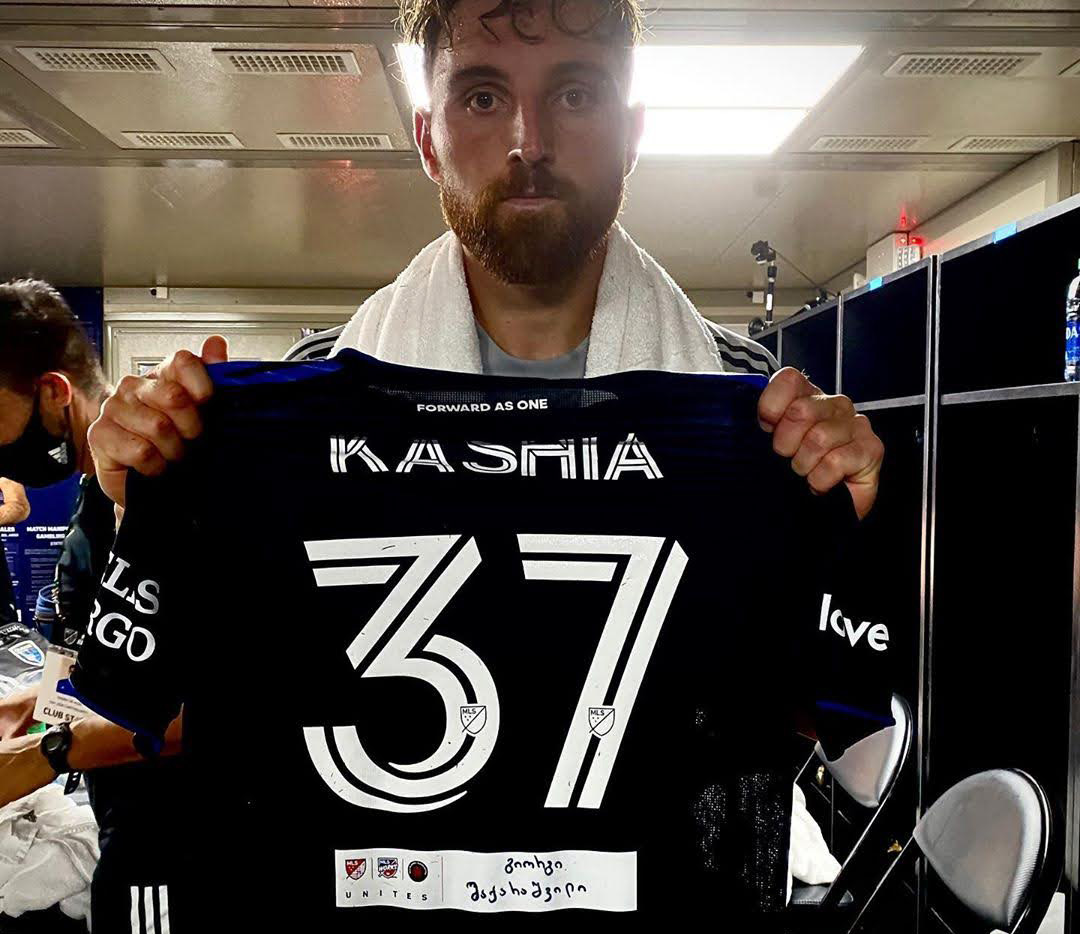
Not everyone condemned violence among Georgia’s youth, however. ‘Street brawls, some scuffles among youths, will always happen’, parliamentary majority leader Mamuka Mdinaradze said on 27 June.
Andria Jagmaidze, the spokesperson of the Patriarchate of Georgian Orthodox Church, one of the most influential institutions in Georgia, went even further by blaming the incident on ‘Europeanisation and freedom to take drugs’, and on the Church’s diminished access to schools to talk with young people about violence.


